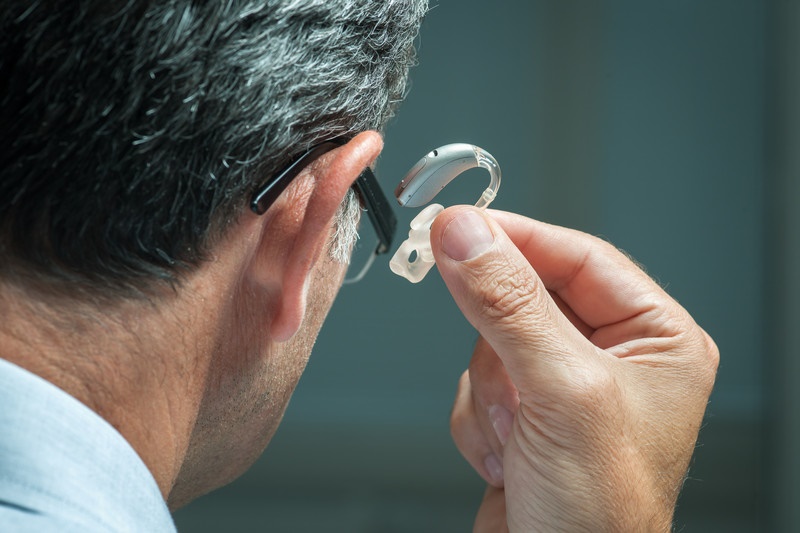
There are many options to choose from when it comes to hearing aids. Styles range in price, dexterity, cosmetic appearance, and circuitry. The most important thing is that you find the right hearing aids for your hearing loss.
What to look for when purchasing hearing aids:
- Programmability – not all hearing aids are created equal. Your hearing aids should be programmed to enhance sounds according to your hearing loss. You might not need hearing aids that amplify all sounds. Think about your lifestyle and surroundings and what is most important for you to hear.
- Style – hearing aids come in all different shapes and sizes. You can get styles that fit behind the ear, completely in the ear canal, or a combination of the two. Most importantly, you can get nearly any style in any circuitry. There are several elements to take into consideration when purchasing hearing aids – your hearing specialist will help determine what is most important for you.
- Noise Reduction – it’s important to consider how much noise reduction you want. This will really depend on your lifestyle. For example, if you spend a majority of your time at home watching TV and having a conversation here and there, you won’t necessarily need top-of-the-line hearing aids. On the other hand, if you often find yourself in noisy situations, you’ll want to think about more advanced technology. When considering noise reduction, it’s important to analyze your lifestyle and ultimately what you need to hear.
Call Today to Set Up an Appointment
What are the different categories of hearing aids?
As mentioned above, there are different styles of hearing aids. We’re going to break down each style into categories to help our readers better understand their options.
- Behind the Ear (BTE) – this style of hearing aid is more traditional. The design includes a custom molded piece that goes in the ear with a larger backing behind the ear.
- Receiver in the Canal or Receiver in the Ear (RIC) or (RITE) – these hearing aids have a very thin tube that fits next to the head while the speaker goes into the ear canal.
- In the Ear (ITE) – this style fills the bowl part of the ear.
- In the Canal (ITC) – this style fits in the lower corner of the ear and partly sticks out into the bowl of the ear.
- Completely in the Canal (CIC) – these hearing aids fit deeper in the ear and aren’t as visible.
Deciding which style of hearing aid is best for you depends on how much technology is necessary for your amount of hearing loss. For example, behind the ear hearing aids are more common for individuals with significant hearing loss due to their capacity for more advanced technology. Whereas, a small hearing aid deep in the ear canal won’t have the same amount of power. The style that is most suitable for you will depend on a combination of your hearing loss, dexterity, and comfort level.
Talk to your hearing specialist and he or she will help guide you in the right direction. You’ll discuss several factors to help determine what your hearing aid needs are. Your hearing specialist might also go over a handful of important things to keep in mind for a future with hearing aids:
- Hearing aids won’t restore your hearing to normal. They improve your hearing by amplifying sounds.
- It takes time to get used to hearing aids. The more you use your hearing aids, the quicker you’ll get used to them.
- Your amplified hearing will sound different in new environments. Practice using them in different surroundings.
- If you find yourself frustrated with your new hearing aids, seek support from your family or hearing specialist. You might consider joining a support group for people with hearing loss.
- Go back for follow-ups. Your provider can make adjustments, if necessary, to ensure your hearing aids are suitable for you.
When getting hearing aids, it’s important to really think about your lifestyle and hearing needs. What does a typical week look like regarding auditory environments? Who are the people you talk to on a regular basis and when do you having trouble hearing them? If you only find yourself struggling to hear on the phone, you might only need a phone adapter. However, if you’re struggling to hear someone face to face, then you could benefit from hearing aids. This type of information will help your specialist determine which hearing aids are best for you!
Hearing loss can occur at any stage of life, but you shouldn’t have to face it alone. Talk to your hearing specialist if you think you could benefit from hearings aids, and get the information you need to live your best life! Come back for future blog posts about audiology-related topics!
